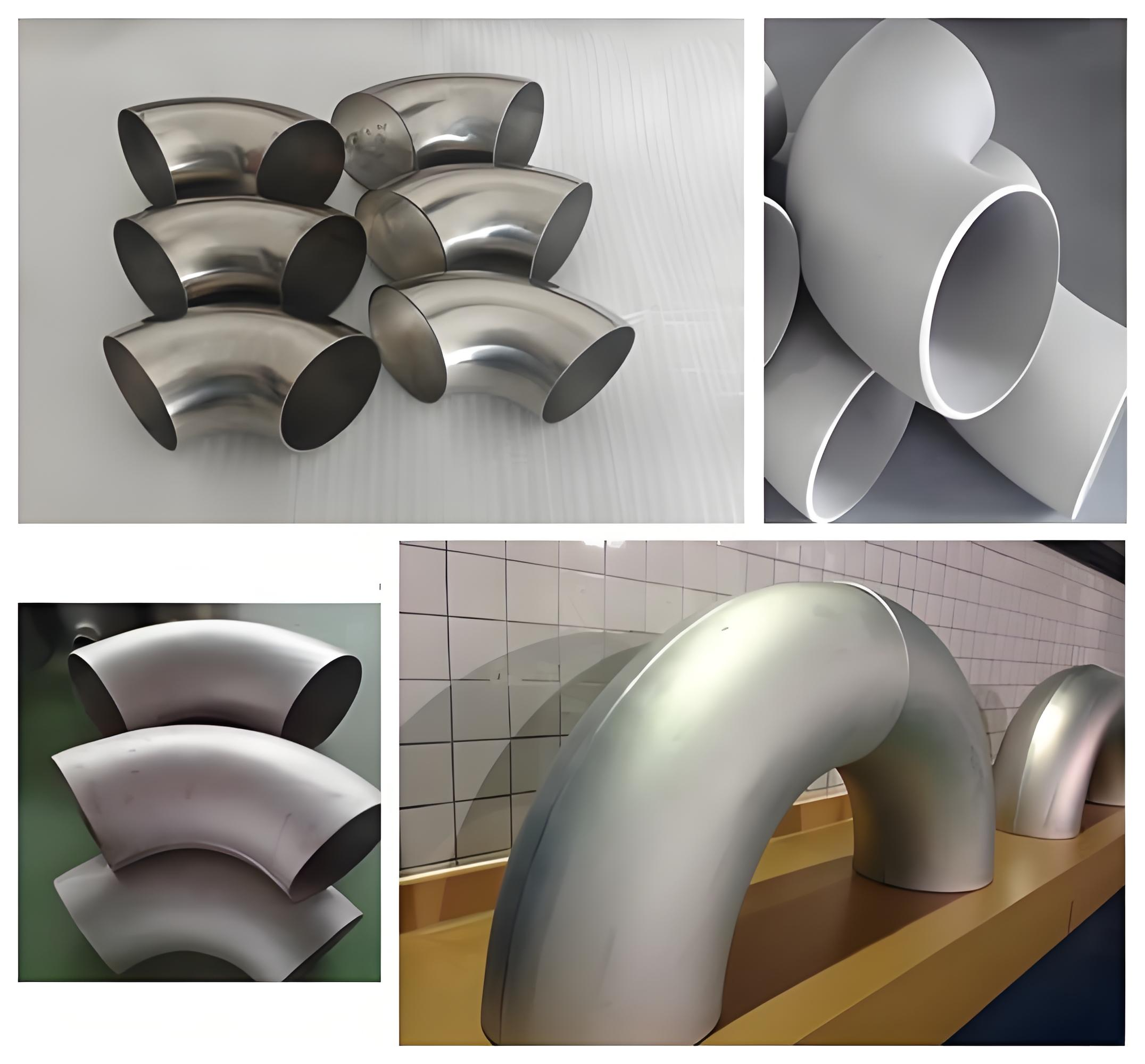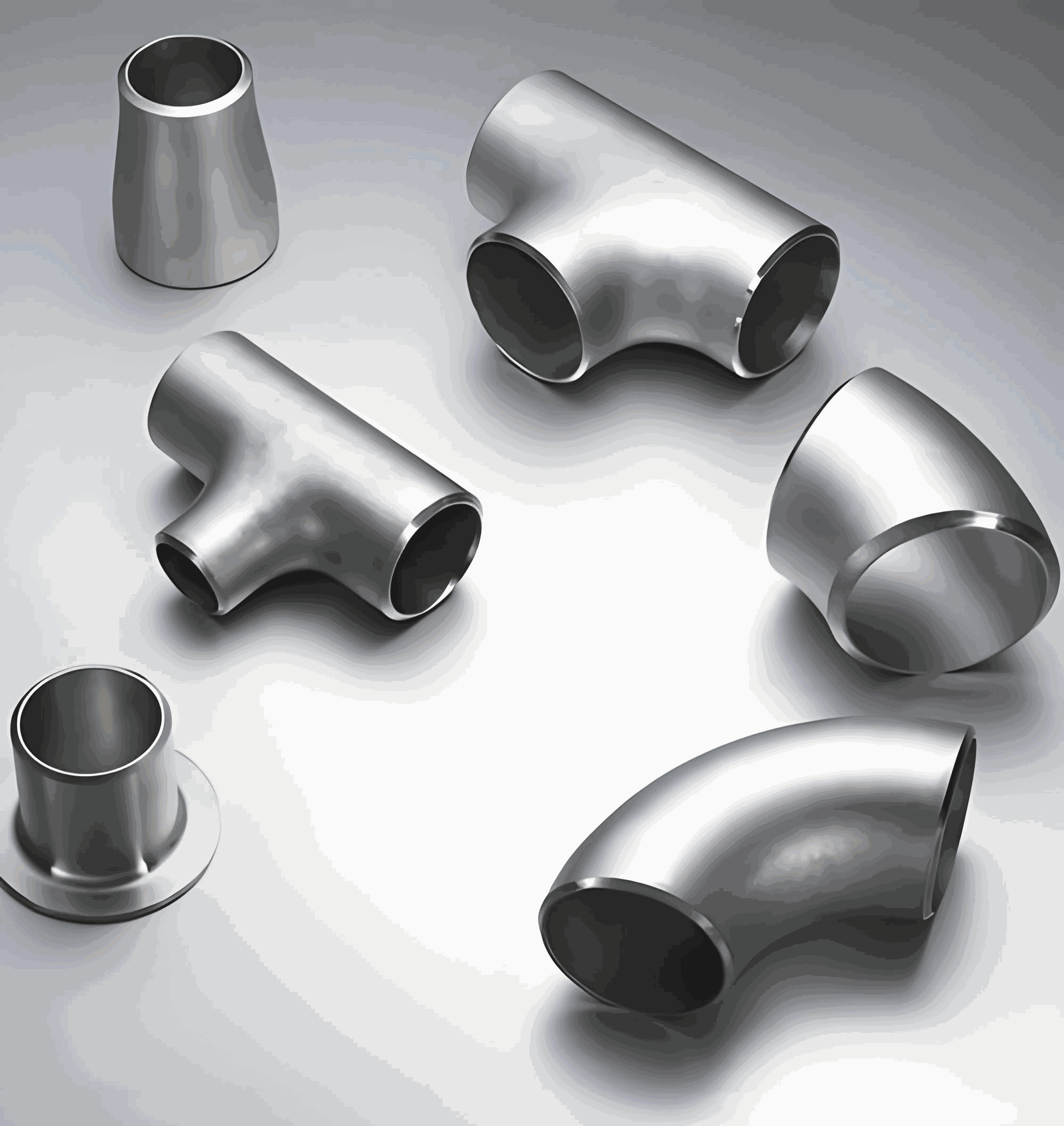Views: 300 Author: Lasting Titanium Publish Time: 2024-09-27 Origin: Site











Content Menu
● Applications of Titanium Elbows
● Manufacturing Process of Titanium Elbows
● Advantages of Titanium Elbows
● Disadvantages of Titanium Elbows
● Comparison with Other Materials
Titanium elbows are increasingly becoming a popular choice in various industries due to their unique properties and advantages. This article delves into the applications, manufacturing processes, advantages, disadvantages, and comparisons with other materials, providing a comprehensive overview of titanium elbows.
Titanium elbows are utilized in a wide range of applications across different sectors. Their strength, lightweight nature, and resistance to corrosion make them ideal for various uses.
In the aerospace industry, titanium elbows are essential for piping systems that transport fuel and hydraulic fluids. Their ability to withstand extreme temperatures and pressures ensures the safety and efficiency of aircraft operations.
In the chemical processing industry, titanium elbows are favored for their resistance to corrosive substances. They are commonly used in pipelines that handle aggressive chemicals, ensuring longevity and reducing maintenance costs.
The medical field also benefits from titanium elbows, particularly in surgical instruments and implants. The biocompatibility of titanium makes it suitable for use in the human body, minimizing the risk of rejection and infection.
Additionally, titanium elbows are used in marine applications, where exposure to saltwater can lead to rapid corrosion of other materials. Their durability ensures that marine structures and vessels maintain their integrity over time.

The manufacturing process of titanium elbows involves several key steps to ensure high quality and performance.
The process typically begins with the selection of titanium alloy, which is chosen based on the specific requirements of the application. Common alloys include Ti-6Al-4V, known for its excellent strength-to-weight ratio and corrosion resistance.
Once the alloy is selected, the titanium is melted and formed into a billet. This billet is then heated and shaped into the desired elbow configuration using techniques such as forging or bending.
After shaping, the elbows undergo a series of treatments to enhance their properties. Heat treatment is often applied to improve strength and ductility, while surface treatments may be used to enhance corrosion resistance.
Quality control is a critical aspect of the manufacturing process. Each titanium elbow is subjected to rigorous testing to ensure it meets industry standards and specifications. This includes non-destructive testing methods to detect any internal flaws or defects.
Titanium elbows offer numerous advantages that make them a preferred choice in various applications.
One of the most significant benefits is their exceptional strength-to-weight ratio. Titanium is much lighter than steel, yet it can withstand similar or even greater loads. This characteristic is particularly advantageous in industries where weight reduction is crucial, such as aerospace.
Corrosion resistance is another major advantage of titanium elbows. They can withstand harsh environments, including exposure to chemicals and saltwater, without succumbing to rust or degradation. This property extends the lifespan of piping systems and reduces maintenance costs.
Titanium elbows also exhibit excellent thermal stability. They can maintain their structural integrity under extreme temperatures, making them suitable for high-temperature applications.
Furthermore, titanium is biocompatible, which is essential in medical applications. The use of titanium elbows in surgical instruments and implants minimizes the risk of adverse reactions in the human body.

Despite their many advantages, titanium elbows also have some disadvantages that should be considered.
One of the primary drawbacks is the cost. Titanium is more expensive than other materials, such as stainless steel or carbon steel. This higher initial investment can be a barrier for some industries, particularly those with tight budgets.
Another disadvantage is the difficulty in machining titanium. The material is harder and more challenging to work with than other metals, which can lead to increased manufacturing costs and longer lead times. Specialized tools and techniques are often required to achieve the desired precision.
Additionally, while titanium elbows are resistant to corrosion, they can still be susceptible to certain types of corrosion, such as galvanic corrosion when in contact with dissimilar metals. Proper material selection and design considerations are essential to mitigate this risk.
When comparing titanium elbows to those made from other materials, several factors come into play.
Stainless steel is a common alternative to titanium. While stainless steel is also corrosion-resistant and strong, it is heavier than titanium. In applications where weight is a critical factor, titanium elbows may be the better choice. However, stainless steel is generally more affordable and easier to machine, making it a popular option for many industries.
Carbon steel is another alternative, known for its strength and affordability. However, carbon steel is prone to rust and corrosion, especially in harsh environments. This makes titanium elbows a superior choice for applications where corrosion resistance is paramount.
In the realm of plastics, materials such as PVC and CPVC are often used for piping systems. While these materials are lightweight and resistant to corrosion, they lack the strength and durability of titanium. In high-pressure or high-temperature applications, titanium elbows outperform plastic alternatives.
In conclusion, titanium elbows are a versatile and valuable component in various industries. Their unique properties, including strength, lightweight nature, and corrosion resistance, make them an ideal choice for applications ranging from aerospace to medical devices. While they come with some disadvantages, such as higher costs and machining challenges, the benefits often outweigh these drawbacks. As industries continue to seek materials that offer both performance and longevity, titanium elbows are likely to remain a preferred choice for many applications.
This article explores the key stages in processing titanium from raw ore to finished rods and wires. It covers extraction, beneficiation, production of titanium sponge, melting, forging, rolling, wire drawing, surface treatment, and quality control. The unique properties of titanium make it suitable for various applications, particularly in aerospace and medical fields. The ongoing advancements in titanium processing technologies promise to enhance its applications further.
This article provides a detailed overview of the manufacturing process of titanium welded tubes, covering raw material selection, cutting, welding techniques, heat treatment, finishing processes, and quality control. It highlights the applications of titanium welded tubes in various industries, emphasizing their advantages and the importance of quality assurance in production.
This article provides a comprehensive overview of sponge titanium, detailing its composition, grades, benefits, and applications. Sponge titanium is a high-purity, porous form of titanium produced through the Kroll process, making it ideal for industries such as aerospace and medical devices. Its unique properties, including lightweight strength and corrosion resistance, make it a valuable material in modern manufacturing.
This article explores how titanium wire is revolutionizing modern manufacturing through its unique properties and applications. It highlights the advantages of titanium wire in various industries, innovations in manufacturing techniques, and the future potential of this remarkable material. As demand for lightweight, high-strength materials grows, titanium wire is set to play a crucial role in advancing manufacturing practices.
This article outlines common mistakes to avoid when purchasing titanium wire, emphasizing the importance of understanding grades, supplier reputation, material specifications, and application requirements. It provides practical tips for ensuring quality and performance, ultimately guiding buyers to make informed decisions in their procurement process.
This article provides a comprehensive guide on selecting titanium wire based on diameter and grade. It covers the properties of titanium wire, common diameter ranges, and the significance of different grades. Key factors for selection, including application requirements and manufacturing processes, are discussed to help ensure optimal performance in various applications.
This article explores the differences between hot rolled and cold rolled titanium round bars, focusing on their production methods, mechanical properties, applications, and advantages. Cold rolled bars offer higher strength and better surface finish, while hot rolled bars are more cost-effective and available in larger sizes. Understanding these differences is crucial for selecting the right titanium material for various industrial applications.
In summary, the choice between cold rolled and hot rolled titanium bars depends on the specific requirements of the application. Cold rolled bars offer higher strength, better surface finish, and tighter tolerances, making them ideal for precision applications. In contrast, hot rolled bars provide cost-effective solutions for larger projects where exact dimensions are less critical. Understanding the differences in production and properties of these two types of titanium bars is essential for selecting the right material for your needs.
This article explores the intricate process of manufacturing titanium wire from raw bar stock, detailing each step from raw material preparation to surface treatment. It highlights the importance of precision in producing high-quality titanium wire, which is essential for various industries, including aerospace and medical applications. The versatility and performance of titanium wire make it a critical material in modern engineering and manufacturing.
This article explores the transformation of sponge titanium into titanium ingots, detailing the key processes involved, including purification, compaction, vacuum arc remelting, and casting. It highlights the importance of each step in ensuring the quality and performance of the final product.
This article explores the key production processes and differences between cold-rolled and hot-rolled titanium sheets. It discusses the impact of production temperature on mechanical properties, surface finish, thickness, and cost considerations. The article also highlights the applications of both types of titanium sheets in various industries, providing insights for selecting the appropriate material for specific projects.
This article explores the process of converting titanium sponge to ingot, detailing each step from purification to melting and casting. It highlights the importance of titanium ingots in various applications and discusses future trends in titanium production, including sustainability and advancements in alloy development.
This article explores the classification of titanium sponge grades, detailing their chemical composition, mechanical properties, and applications. It highlights the differences between commercially pure and alloy grades, emphasizing their importance in various industries. Future trends in titanium sponge production are also discussed, focusing on sustainability and advancements in alloy development.
This article explores the intricate process of converting rutile into titanium sponge, detailing each step from ore preparation to purification and melting. It highlights the importance of titanium in various industries and discusses environmental considerations and future production methods.
This comprehensive guide explores the benefits, applications, and purchasing tips for titanium wire in 3D printing. It covers essential properties, how to choose the right grade, and storage recommendations, making it a valuable resource for anyone interested in utilizing titanium wire for their 3D printing needs.
This article explores the key performance differences between pure titanium wire and titanium alloy wire, highlighting their unique properties, advantages, and applications. Pure titanium wire is known for its excellent corrosion resistance and biocompatibility, making it ideal for medical and marine applications. In contrast, titanium alloy wire offers enhanced strength and performance characteristics, making it suitable for demanding applications in aerospace, automotive, and industrial settings. The choice between the two ultimately depends on specific application requirements.
This article explores the applications of titanium wire in aerospace engineering, highlighting its unique properties such as high strength-to-weight ratio, corrosion resistance, and temperature tolerance. From aircraft structures to engine components and spacecraft applications, titanium wire plays a crucial role in enhancing performance and reliability in the aerospace industry. As technology advances, its applications are expected to expand further.
This article explores the diverse applications of titanium wire in the medical industry, highlighting its biocompatibility, strength, and corrosion resistance. From orthopedic surgery to dental implants and cardiovascular devices, titanium wire plays a crucial role in enhancing patient care and surgical outcomes. As technology advances, its applications are expected to expand further.
This article provides a comprehensive guide on selecting titanium tubes that comply with ASTM and AMS standards. It covers key factors to consider, the importance of compliance, common applications, and future trends in titanium tube manufacturing. Understanding these aspects is crucial for ensuring the safety and reliability of titanium tubes in various industries.
This article explores the intricate manufacturing process of titanium tubes, detailing each stage from ore extraction to finished product. It highlights the significance of quality control, applications across various industries, and future trends in titanium tube manufacturing, emphasizing the metal's unique properties and growing demand.
